Filter by
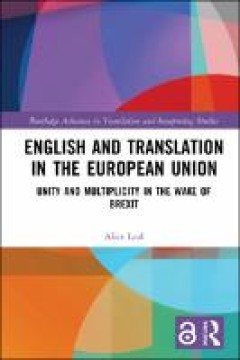
English and translation in the European Union : unity and multiplicity in the…
This book explores the growing tension between multilingualism and monolingualism in the European Union in the wake of Brexit, underpinned by the interplay between the rise of English as a lingua franca and the effacement of translations in EU institutions, bodies and agencies. English and Translation in the European Union draws on an interdisciplinary approach, highlighting insights from appli…
- Edition
- -
- ISBN/ISSN
- 9780429282812
- Collation
- x, 218 p. : ill.
- Series Title
- Routledge Advances in Translation and Interpreting Studies
- Call Number
- 306.446094 LEA e
Latin as the language of science and learning
This book investigates the role of the Latin language as a vehicle for science and learning from several angles. First, the question what was understood as ‘science’ through time and how it is named in different languages, especially the Classical ones, is approached. Criteria for what did pass as scientific are found that point to ‘science’ as a kind of Greek Denkstil based on pattern-…
- Edition
- -
- ISBN/ISSN
- 9783110745832
- Collation
- XIII, 646 p.
- Series Title
- Lingua Academica
- Call Number
- 470.9 ROU l
Multimodal Texts in Disciplinary Education : A Comprehensive Framework
This open access book provides an introduction to multimodality and the role of multimodal texts in today’s education. Presenting a comprehensive framework for analysing and working with multimodal texts in disciplinary education, it serves as a tool for researchers and teachers alike. The second part of the book focuses on sample analyses of a variety of educational texts for different age g…
- Edition
- -
- ISBN/ISSN
- 9783030639600
- Collation
- xiv, 132 p. : ill.
- Series Title
- -
- Call Number
- 371.3 DAN m

EMI and beyond : internationalising higher education curricula in Italy
This collection presents the state of the art on English-medium instruction (EMI) / Integrating content and language (ICL) in Italian higher education, drawing attention to different critical aspects of the teaching/learning experience and highlighting the perspectives of various educational stakeholders regarding the effectiveness of tertiary study in a foreign language. The chapters draw on a…
- Edition
- -
- ISBN/ISSN
- 9788860461827
- Collation
- vi, 285 p. : color, ill
- Series Title
- -
- Call Number
- 420.71145 MAS e
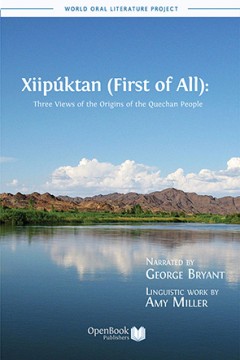
Xiipúktan (first of all): three views of the origins of the Quechan people
The Quechan people live along the lower part of the Colorado River in the United States. According to tradition, the Quechan and other Yuman people were created at the beginning of time, and their Creation myth explains how they came into existence, the origin of their environment, and the significance of their oldest traditions. The Creation myth forms the backdrop against which much of the tr…
- Edition
- -
- ISBN/ISSN
- 9781909254411
- Collation
- 210 p. ; 24 cm
- Series Title
- -
- Call Number
- 973.0497 BRY x
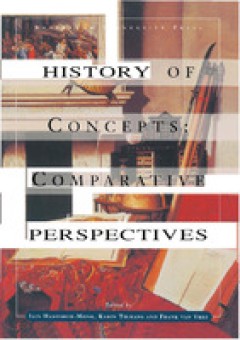
History of concepts : comparative perspectives
Although vastly influential in German-speaking Europe, conceptual history (Begriffsgeschichte) has until now received little attention in English. This genre of intellectual history differs from both the French history of mentalités and the Anglophone history of discourses by positing the concept - the key occupier of significant syntactical space - as the object of historical investigation. C…
- Edition
- -
- ISBN/ISSN
- 9053563067
- Collation
- ix, 293 p. : ill
- Series Title
- -
- Call Number
- 907.2 VAN h
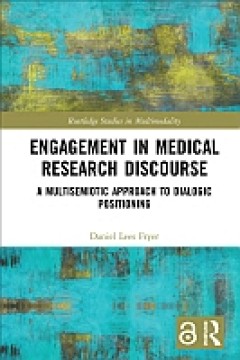
Engagement in medical research discourse: a multisemiotic approach to dialogi…
This book integrates insights from dialogic theory and systemic functional linguistics (SFL) to extend our understandings of engagement in medical research articles, going beyond notions of the role of verbal dialogue to encompass mathematical and visual semiotics and consider text not just as language but as multisemiosis. The volume begins by outlining the engagement framework and offering a …
- Edition
- -
- ISBN/ISSN
- 9781003041146
- Collation
- xi, 206 p. : ill.
- Series Title
- Routledge Studies in Multimodality
- Call Number
- 610.141 FRY e
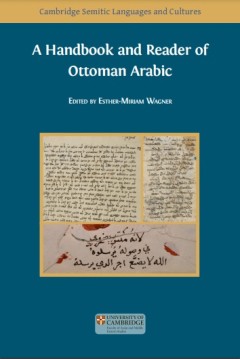
A handbook and reader of Ottoman Arabic
Written forms of Arabic composed during the era of the Ottoman Empire present an immensely fruitful linguistic topic. Extant texts display a proximity to the vernacular that cannot be encountered in any other surviving historical Arabic material, and thus provide unprecedented access to Arabic language history. This rich material remains very little explored. Traditionally, scholarship on Ar…
- Edition
- -
- ISBN/ISSN
- 9781783749430
- Collation
- xx, 463 p. : ill. ; 15.6 cm.
- Series Title
- -
- Call Number
- 492.7 WAG a

Ancient greek I : a 21st century approach
In this elementary textbook, Philip S. Peek draws on his twenty-five years of teaching experience to present the ancient Greek language in an imaginative and accessible way that promotes creativity, deep learning, and diversity. The course is built on three pillars: memory, analysis, and logic. Readers memorize the top 250 most frequently occurring ancient Greek words, the essential word end…
- Edition
- -
- ISBN/ISSN
- 9781800642560
- Collation
- xxiii, 610 p. : ill. ; 20.3 cm.
- Series Title
- -
- Call Number
- 488 PEE a
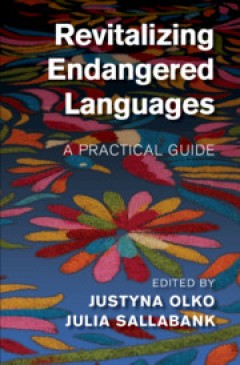
Revitalizing endangered languages : a practical guide
Of the approximately 7,000 languages in the world, at least half may no longer be spoken by the end of the twenty-first century. Languages are endangered by a number of factors, including globalization, education policies, and the political, economic and cultural marginalization of minority groups. This guidebook provides ideas and strategies, as well as some background, to help with the effect…
- Edition
- -
- ISBN/ISSN
- 9781108485753
- Collation
- xvii, 352 p. ; ill
- Series Title
- -
- Call Number
- 306.44 OLK r
 Computer Science, Information & General Works
Computer Science, Information & General Works  Philosophy & Psychology
Philosophy & Psychology  Religion
Religion  Social Sciences
Social Sciences  Language
Language  Pure Science
Pure Science  Applied Sciences
Applied Sciences  Art & Recreation
Art & Recreation  Literature
Literature  History & Geography
History & Geography